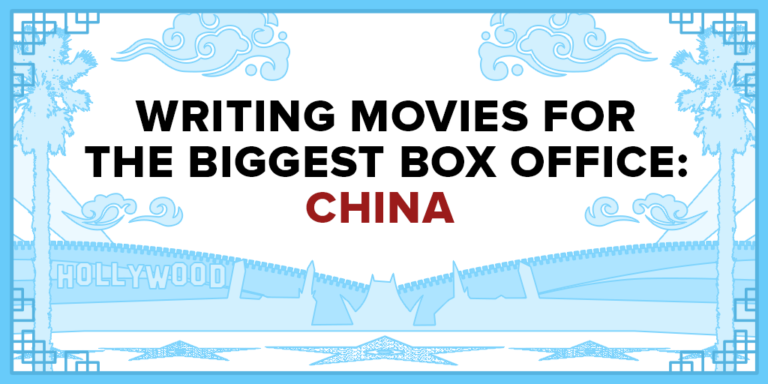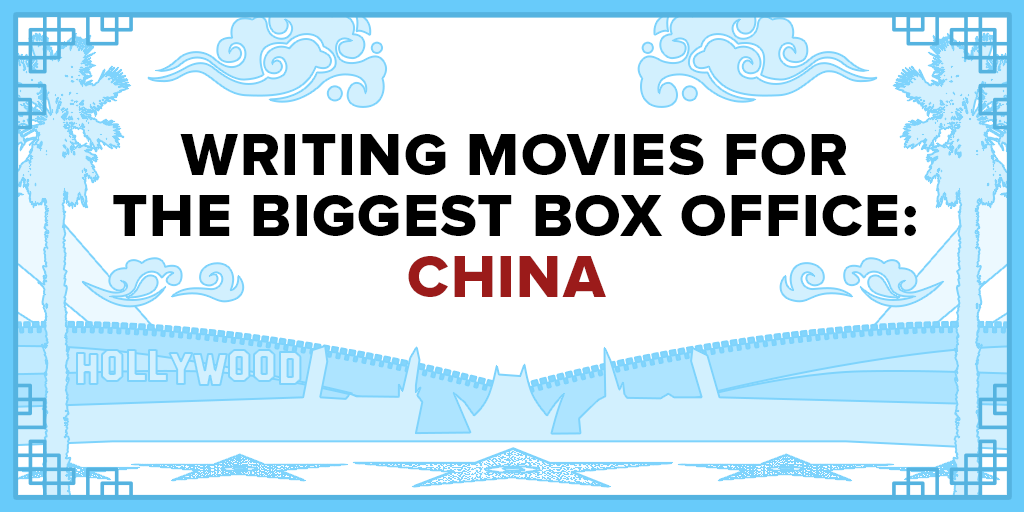Writing Movies for the Chinese Box Office

How can English-speaking screenwriters break into China's quickly growing entertainment market?
Since we started ScreenCraft a few years ago, I've traveled to China several times in search of an answer to this question.
While I'm by no means an expert on China, I've talked with many Chinese producers, screenwriters, financiers and executives from some of China's largest media and tech companies including Baidu, Alibaba, Tencent, Youku and Wanda. I have asked a lot of questions, mostly to understand where there are opportunities for our growing community of talented screenwriters here at ScreenCraft.
On all my trips to China I've heard the same complaint often: Hollywood movies do not portray China accurately!
This is a problem. And it's one of the reasons why we've created a unique cross-cultural screenwriting program with Orb Media Group and a prestigious panel of international advisors and mentors. Our inaugural Orb Media China-Hollywood Screenwriting Fellowship is accepting applications!
Quick facts about China:
- China has the largest population in the world (in case you hadn't heard).
- China has the largest annual box office revenue in the world.
- China has the most movie theaters in the world (and adding several more every single day).
- China has the fastest-growing film production industry in the world, however there is still a huge unmet demand for high-quality content for both theatrical and online platforms.
A great film starts with a great screenplay. So why aren't Hollywood producers and screenwriters flocking to China to fill the growing demand for high-quality content?
There are several challenges for screenwriters and producers looking to break into China's massive movie market.
Challenges for foreigners producing films for China:
- Cultural differences: Western cultures and Eastern cultures are different, and a successful screenplay is sensitive to cultural nuances. Many American screenwriters rely on stereotypes and caricatures of Chinese culture.
- Foreign Quota: China's government only allows a limited number of foreign films in China's theaters per year.
- Censorship: Chinese censorship laws are fairly strict and prevent some mainstream Hollywood content from being released in the country.
Censorship is the trickiest challenge, because it is not easy to clearly identify what will or will not pass China's censorship organ, the State Administration of Press, Publication, Radio, Film and Television. Often times the only way to ensure passing the censorship process is to have a well-connected Chinese producer or government official help shepherd the project through the lengthy evaluation process. While there are guidelines for what is unacceptable, there are lots of examples of exceptions. While the following list may seem intimidating, the fact of the matter is that all projects are ultimately accepted or rejected by human beings with the myriad subjective criteria that inevitably influence people's opinions.
According to a recently translated list, the films in China are prohibited from containing the following contents, as stipulated in Article 25 of China’s Film Regulations:
- Opposing the fundamental principles laid down in the Constitution of the People’s Republic of China;
- Jeopardizing the unification, sovereignty and territorial integrity of the State;
- Divulging State secrets, jeopardizing the security of the State, or impairing the prestige and interests of the State;
- Inciting hatred and discrimination among ethnic groups, harming their unity, or violating their customs and habits;
- Propagating cults and superstition;
- Disrupting public order and undermining social stability;
- Propagating obscenity, gambling or violence, or abetting to commit crimes;
- Insulting or slandering others, or infringing upon the legitimate rights and interests of others;
- Jeopardizing social ethics or fine national cultural traditions.
In other words, don't portray Chinese government officials or police as corrupt or even as antagonists. Don't portray stories with heavy supernatural themes, such as ghosts or demons. Don't portray obscene, overly sexual or violent behavior. Don't portray politically sensitive historical events, such as the Tiananmen Square protests of 1989, etc.
The most popular genres recently in China are PG-13 action, thriller, sci-fi, animated family films, action-comedy, romantic comedy and romantic drama. Also movies inspired by Chinese classic literature or traditional mythology have been very popular.
We are thrilled to partner with Orb Media Group to produce several new projects together for worldwide audiences - and we want to launch the careers of talented emerging screenwriters as we do it! If you want to be considered for this program, we look forward to your application here.
Get Our Screenwriting Newsletter!
Get weekly writing inspiration delivered to your inbox - including industry news, popular articles, and more!




























